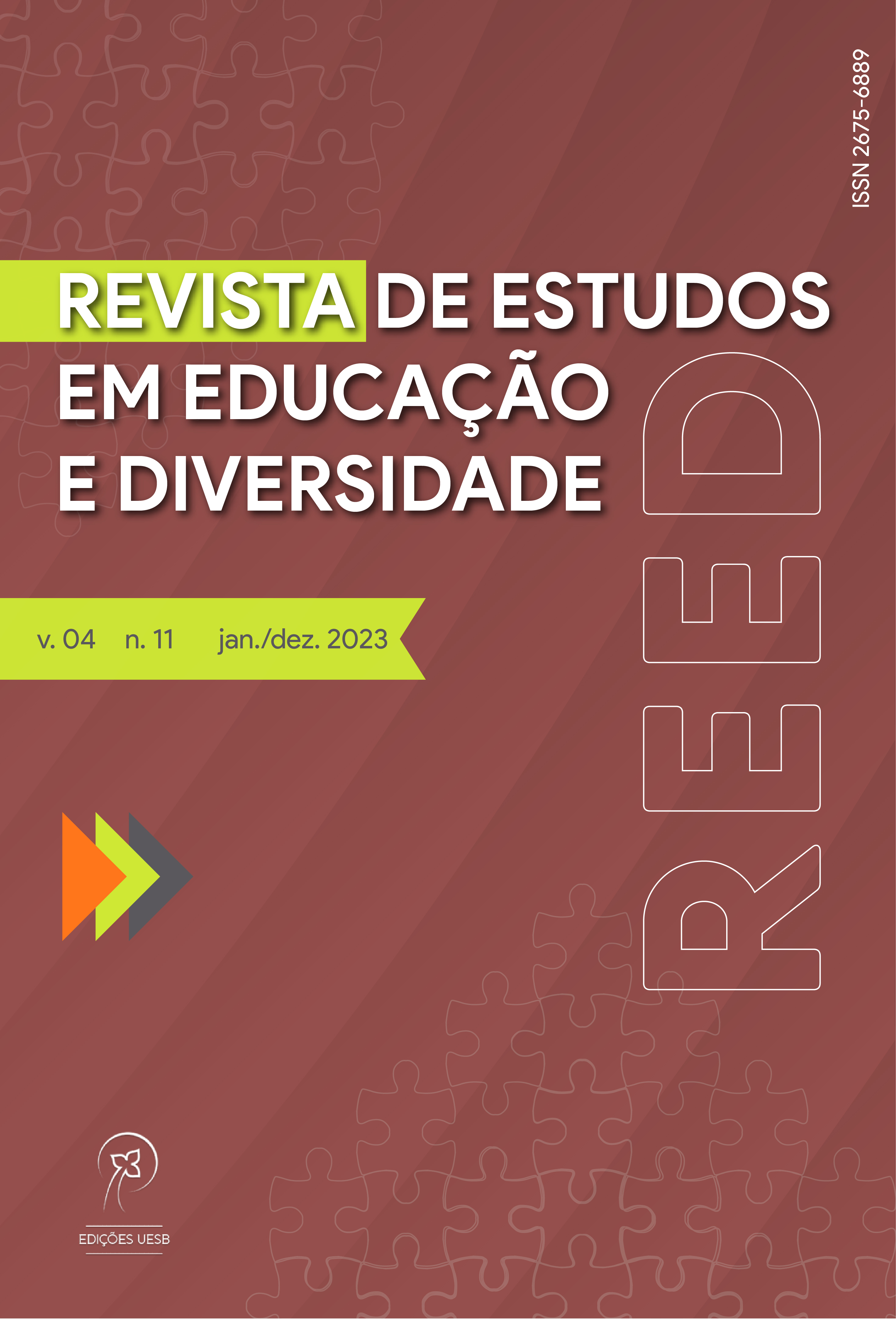Case studies for the approach of ethnic-racial relations in chemistry teaching
DOI:
https://doi.org/10.22481/reed.v4i11.14018Keywords:
case studies, ethnic–racial relations, chemistry teachingAbstract
Case studies are widely recognized and used as a didactic strategy in chemistry teaching. Thus, the inclusion of new topics of discussion, such as ethnic– racial relations, can expand the possibilities of use. This study describes the production process of two historical case studies that address chemical concepts and ethnic– racial relations. We are based on the work of Stinner and collaborators on the production of narratives for high school, which have black characters in prominent roles. In the first case, the work of researcher Onyema Ogbuagu, who is essential in the development of vaccines for the new coronavirus, is discussed. In the second case, Dr. Maynard Daly’s research on the risk factors of cardiovascular diseases is put on focus. The purpose of the elaboration of the cases is to offer teachers materials with theoretical-methodological subsidies to discuss chemistry contents and ethnic-racial issues, to comply with Law 10.639/2003. We emphasize that the application of the cases contributes to the development of essential skills in the training of chemistry students, based on the political and social commitment to use science to understand nature and the society in which they are inserted.
Downloads
References
BRASIL. Casa Civil. Lei n. 10.639/2003. Estabelece as diretrizes e bases da educação nacional, para incluir no currículo oficial da Rede de Ensino a obrigatoriedade da temática "História e Cultura Afro-Brasileira", 2003. Disponível em: https://bitly.ws/YfTa. Acesso em: 10 mar. 2022.
FIOCRUZ. Negros são os que mais morrem por COVID-19 e os que menos recebem vacinas no Brasil, 2021. Disponível em: https://www.epsjv.fiocruz.br/podcast/negros-sao-os-quemais-morrem-por-covid-19-e-os-que-menos-recebem-vacinas-no-brasil. Acesso em: 24 ago. 2021.
GOMES, N. L. Alguns termos e conceitos presentes no debate sobre relações raciais no Brasil: uma breve discussão. In: OUANE, A. et al. (Org.). Educação antirracista: caminhos abertos pela Lei Federal nº 10.639/03. 2005. Brasília: MEC, p. 39-62, 2005.
INSTITUTO ODARA. COVID-19, 2021. Disponível em: https://institutoodara.org.br/covid-19/. Acesso em: 24 ago. 2021.
MUNANGA, K. (Org.). Estratégias e políticas de combate à discriminação racial. São Paulo: EDUSP/Estação Ciências, 1996.
PESQUISA FAPESP. Desigualdade social e racial é fator importante por trás de óbitos relacionados à covid-19, 2021. Disponível em:
https://revistapesquisa.fapesp.br/desigualdade-social-e-racial-e-fator-importante-por-tras-deobitos-relacionados-a-covid-19/. Acesso em: 03 set. 2021.
PINHEIRO, B. C. S. Educação em ciências na escola democrática e as relações étnico-raciais. Revista Brasileira de Pesquisa em Educação em Ciências, v. 19, p. 329-344, 2019. Disponível em: https://periodicos.ufmg.br/index.php/rbpec/article/view/13139. Acesso em: 01 set. 2021.
SÁ, L. P.; FRANCISCO, C. A.; QUEIROZ, S. L. Estudos de caso em química. Química Nova, v. 30, p. 731-739, 2007. Disponível em: https://quimicanova.sbq.org.br/detalhe_artigo.asp?id=5862. Acesso em: 02 dez. 2023.
SANTOS, J. J. S.; SANTOS, P. N.; CABRAL, P. F. O. Design de estudos de caso históricos para as relações étnico-raciais: contribuições para o ensino de química. Revista de Estudos em Educação e Diversidade, v. 3, n. 7, p. 1-24, 2022. Disponível em: https://periodicos2.uesb.br/index.php/reed/article/view/10382. Acesso em: 02 dez. 2023.
STINNER, A.; MCMILLAN, B. A.; METZ, D.; JILEK, J. M.; KLASSEN, S. The renewal of case studies in science education. Science & Education, n. 12, p. 617-643, 2003. Disponível em: https://link.springer.com/article/10.1023/A:1025648616350. Acesso em: 02 dez. 2023.
Downloads
Published
How to Cite
Issue
Section
License
Copyright (c) 2023 Revista de Estudos em Educação e Diversidade - REED

This work is licensed under a Creative Commons Attribution 4.0 International License.
You are free to:
Share - copy and redistribute the material in any medium or format; Adapt - remix, transform, and build from the material for any purpose, even commercially. This license is acceptable for Free Cultural Works. The licensor cannot revoke these freedoms as long as you follow the terms of the license.
Under the following terms:
Attribution - You must appropriately give credit, provide a link to the license, and indicate if any changes have been made. You may do so in any reasonable way, but not in a way that suggests that you or your use is endorsed by the licensor.
There are no additional restrictions - You cannot apply legal terms or technological measures that legally restrict others to make any use permitted by the license.






